
The Best Hotels Closest to Saxon Switzerland National Park in Saxony
Also, you can take it slower and enjoy the panorama. So here are 12 reasons why you should take a weekend off and visit this stunning place that is the Saxon Switzerland National Park. 1. Find unique rock formations. Saxon Switzerland National Park is the only rock national park in Germany and it offers some stunning views of unique rock.

Saxon Switzerland National Park Two Small Potatoes
Located in Saxon Switzerland National Park are the famous Elbe Sandstone Mountains. Here you can visit breathtaking sights like the 194 m high Bastei Bridge, hike stunning trails and even climb gorgeous rock formations. The region got already developed for tourism at the end of the 18th century. Many visitors come here simply to visit the main.
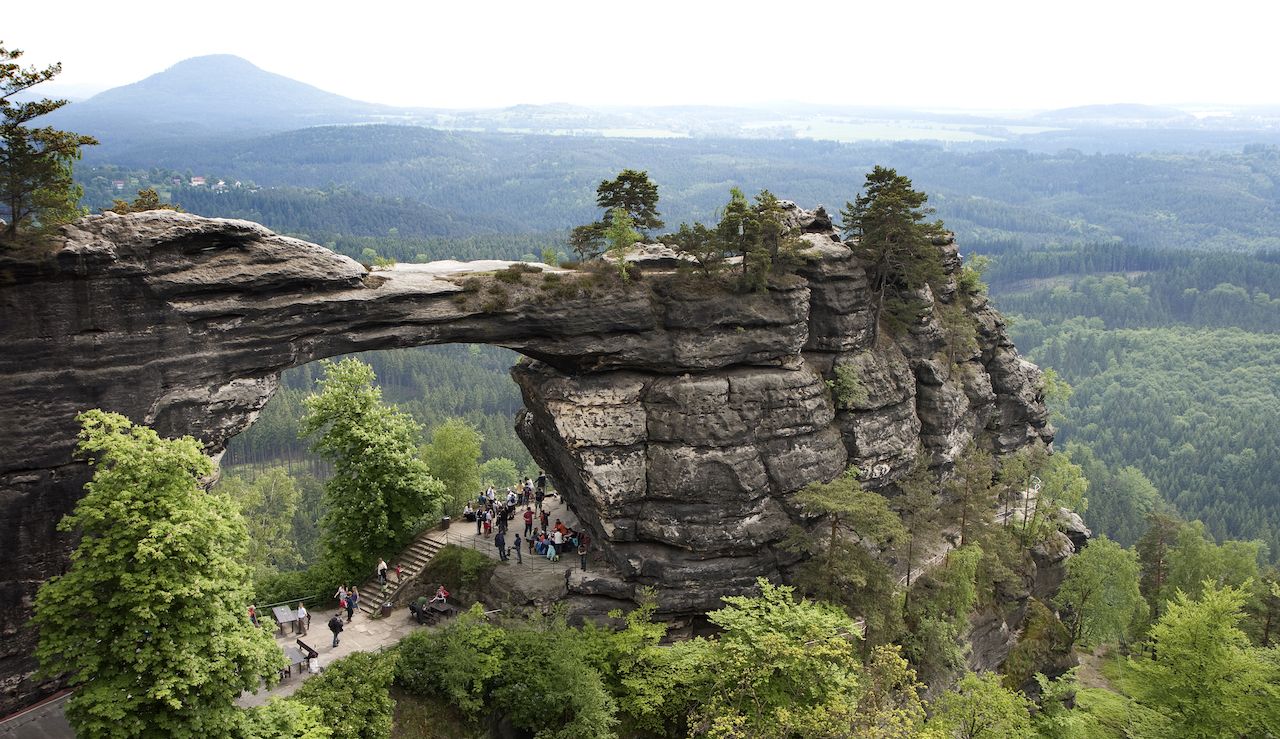
Guide To Hiking Saxon Switzerland National Park in Germany
The Saxon Switzerland National Park is located in the federal state of Saxony, covers an area of 93.5 square kilometers and is located in two geographically separate regions. The western area includes the Rathen area with the famous Bastei Bridge, the Lilienstein and the Polenztal, while the eastern area depicts the area of the Schrammsteine, the Großer Winterberg and Hinteren Sächsische.

Saxon Switzerland Vacations 2017 Package & Save up to 603 Expedia
The park is always open and it is free to visitors. What to Expect at the Bastei Bridge.. One of our optional excursions is an 11 hour day trip to Bohemain/Saxon Switzerland (National Parks that takes us to Bastei Bridge and Neurathan Keep, viewing the Elbe and Gorges of Kemenice Dinghy. The price of $187 Per person includes a private guide.

Saxon Switzerland National Park, Germany National Geographic
The Saxon Switzerland National Park, one of 16 national parks in Germany, is located in the Free State of Saxony in the eastern part of Germany. It is around 30 kilometers (18.6 miles) southeast of Dresden, the capital city of Saxony. The national park is a part of a natural area approximately 710 kilometers squared (274 square miles) in size.

Saxon Switzerland National Park Two Small Potatoes
The Saxon Switzerland National Park Center in Bad Schandau, within easy walking distance of the train station, offers a good overview of the entire region. In varied exhibitions, a multivision show and partly interactive experience and information areas, the nature and development of the national park region are well presented..
THE TOURISTIN Visit the Saxon Switzerland National Park
Saxon Switzerland (German: Sächsische Schweiz) is a hilly climbing area and national park in the Elbe Sandstone Mountains. It is located around the Elbe valley south-east of Dresden in Saxony , Germany , adjoining Bohemian Switzerland in the Czech Republic .

saxon switzerland national park Saxon Switzerland National Park
Saxon Switzerland National Park

National Park Saxon Switzerland, here's what you should know
Reach Saxon Switzerland National Park from Dresden. By car - For the most part you're going to be able to follow signs straight to the entrance. You'll use the A17 and the B172, and the drive from Dresden takes about 45 minutes to traverse 47 kilometers. By train - From the Dresden Hauptbahnhof (main station), you need to take the S1 to.
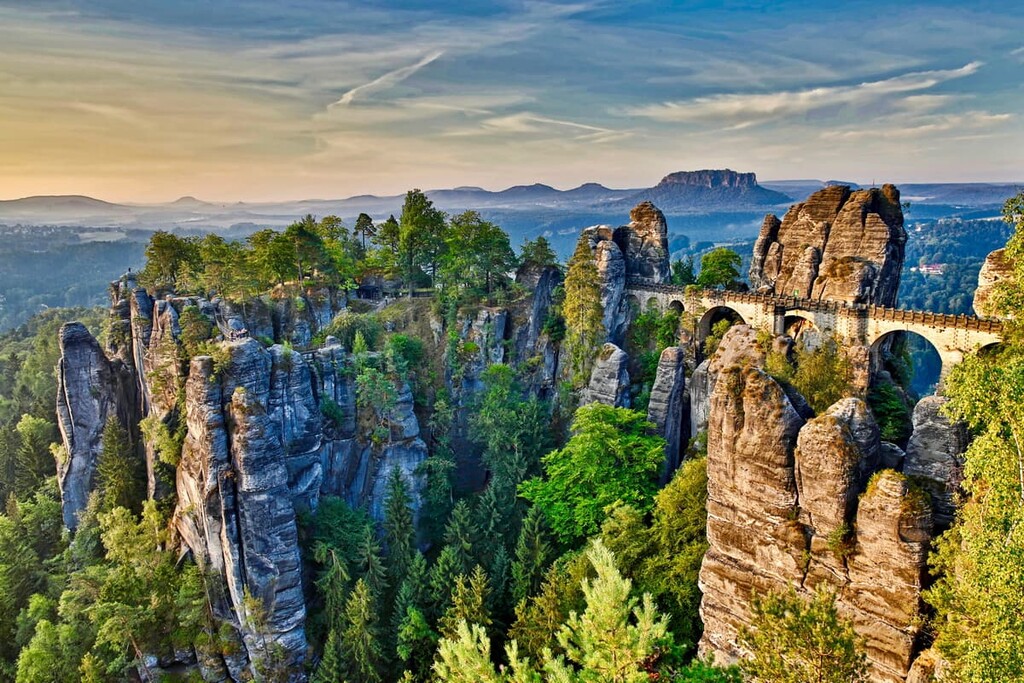
Oblázek Výpočet chladně saxon switzerland national park map Klesání
They are situated near Rathen, not far from Pirna southeast of the city of Dresden, and are the major landmark of the Saxon Switzerland National Park. They are also part of a climbing and hiking area that extends over the borders into the Bohemian Switzerland (Czech Republic). The Bastei has been a tourist attraction for over 200 years. In 1824.

12 Reasons to Visit Saxon Switzerland National Park » Travel with new eyes
S axon Switzerland National Park is a magnificent nature reserve that suffers from mistaken identity. You'd be forgiven if you thought it was in Switzerland, but you'll actually find this forested, rocky wonderland in eastern Germany on the border with the Czech Republic.Saxon Switzerland got its name from two Swiss men who explored the area in the 18th century and were reminded of their.
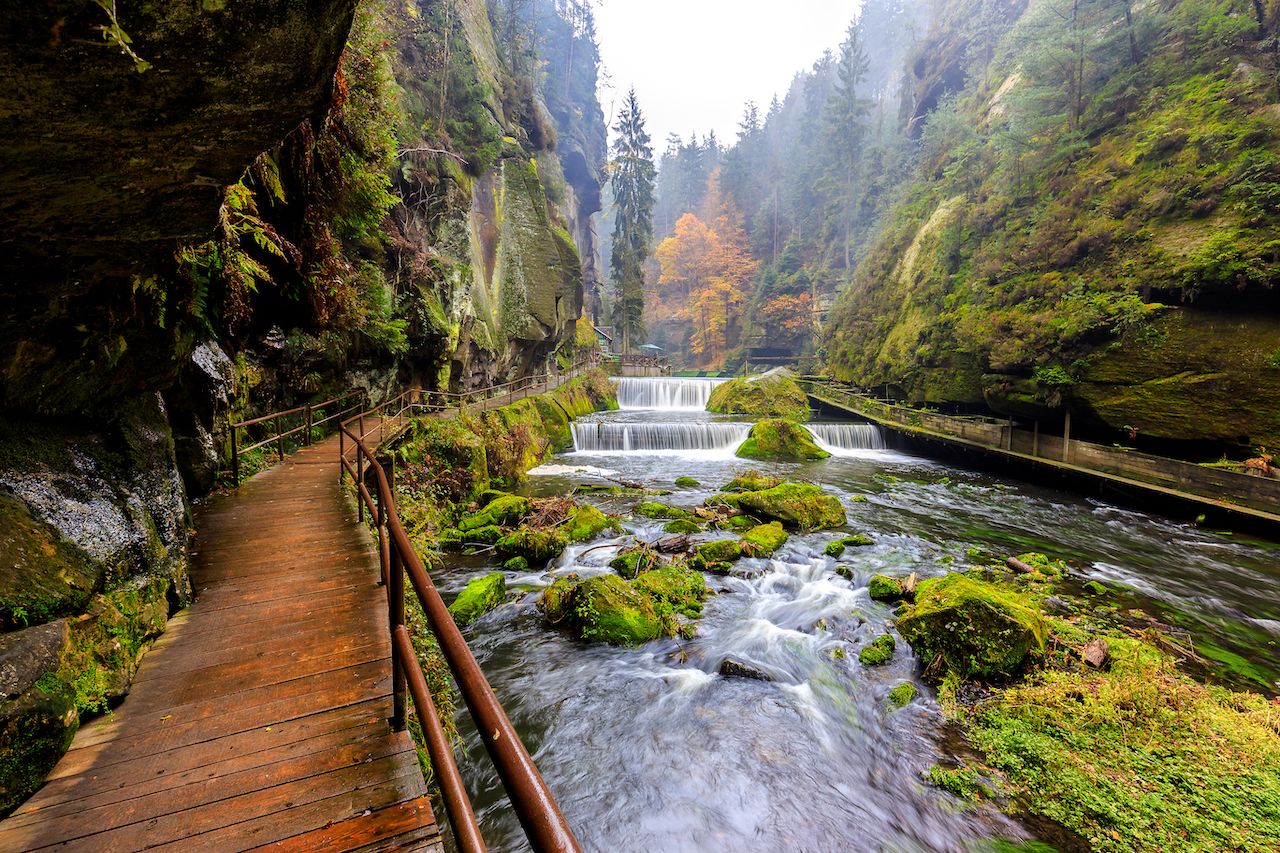
Guide To Hiking Saxon Switzerland National Park in Germany
Saxon Switzerland is an intensively fissured and rocky canyon landscape. The highest peak of the National Park is at 556 meters (1,814 feet) above sea level, but is only a short distance from the valley of the Elbe river at 110 to 120 meters (360 to 390 feet). It offers several different habitats and microclimate zones due to its strong.

A Getaway to the Saxon Switzerland National Park Driven By Curiosity
Saxon Switzerland National Park is located in the eastern part of Germany near the Czech Republic border in the Free State of Saxony. The park covers an area of 36.1 square miles (93.5 sq km). The Elebe Sandstone Mountains transcend the border and are protected Saxon Switzerland National Park on the Germany side and Bohemian Switzerland National Park on the Czech Republic side.
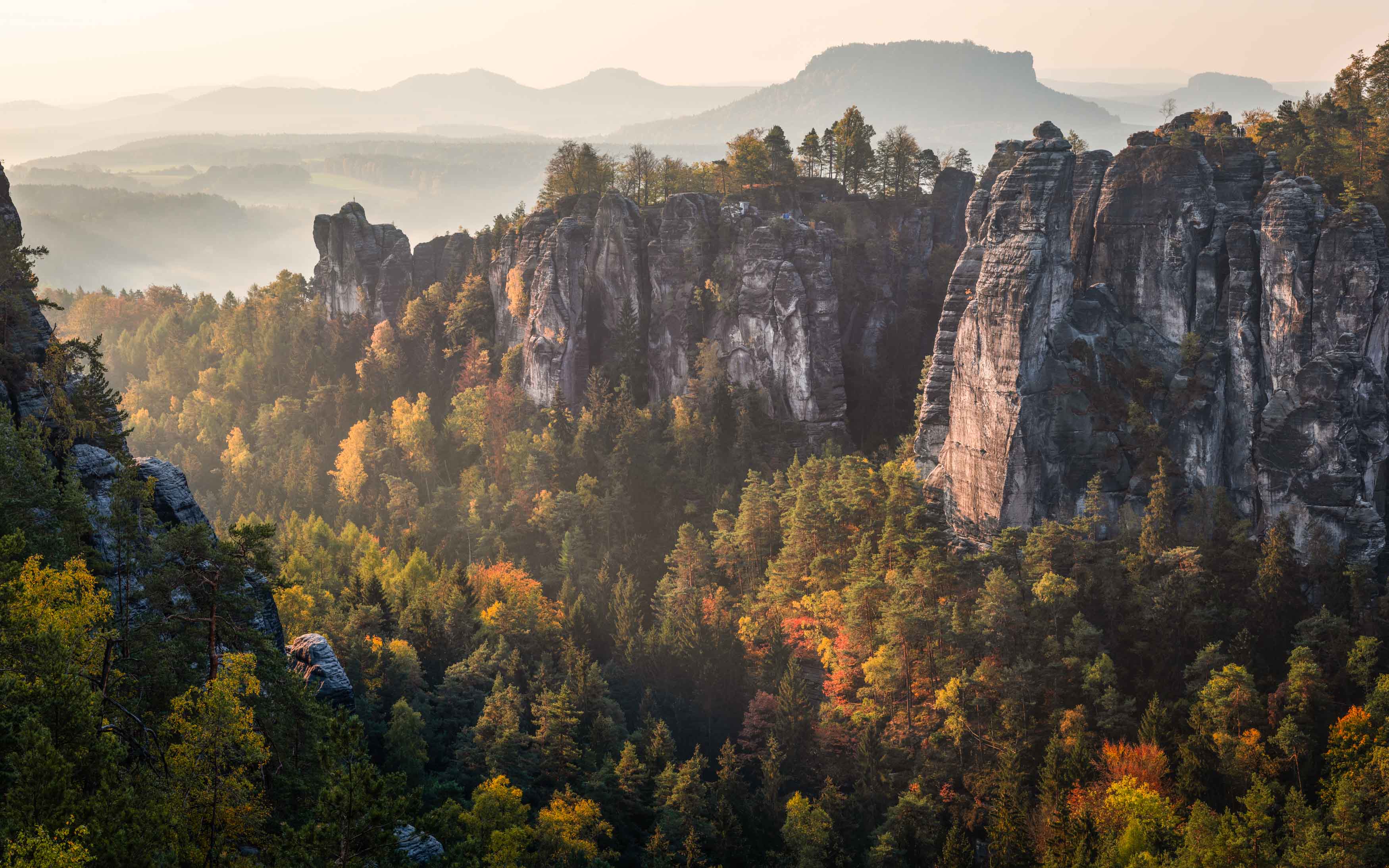
Saxon Switzerland National Park Landscape Photography in Autumn
The territory of the Bohemian - Saxon Switzerland National Park is very forested and rocky and relatively little disturbed by human intervention. This allows the occurrence of many species of animals, with often very different demands on the environment, in a relatively small area. Species diversity is significantly increased by species.
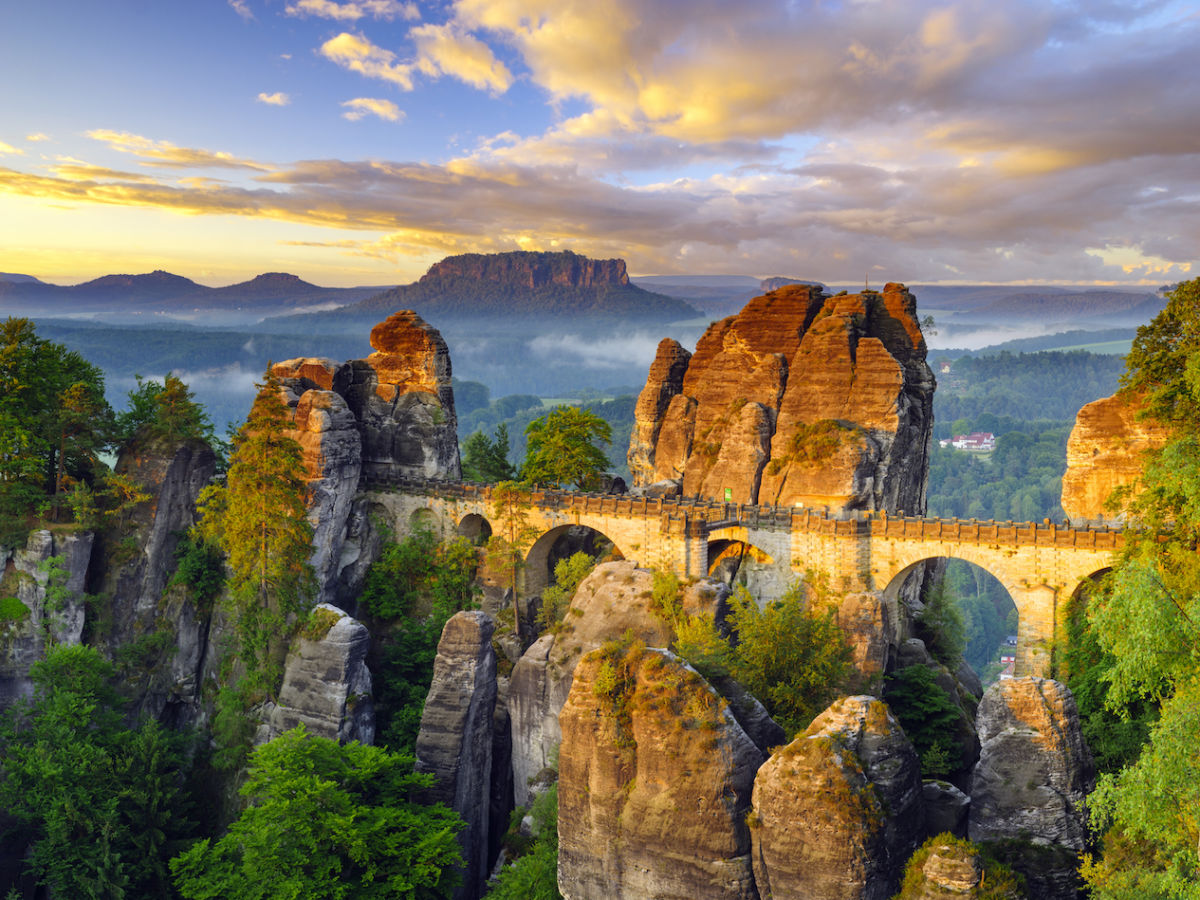
Guide to hiking Saxon Switzerland National Park in Germany
The Saxon Switzerland National Park is one of 16 German national parks. It's a large natural area of around 710 square kilometers (274 square miles) in size. The park lies within the district of Sächsische Schweiz-Osterzgebirge and adjoins the Bohemian Switzerland National Park by the Czech Republic border. The park's landscape is mostly.
THE TOURISTIN Visit the Saxon Switzerland National Park
Urlaubstelefon: 03501 / 470147. Von unseren Urlaubsexperten empfohlen. A very warm welcome to the Saxon Switzerland National Park region, one of the most spectacular natural landscapes of Europe, situated in the extreme southeast of Germany just a few miles away from the Saxon capital of Dresden. This region's scenery fascinates its visitors.